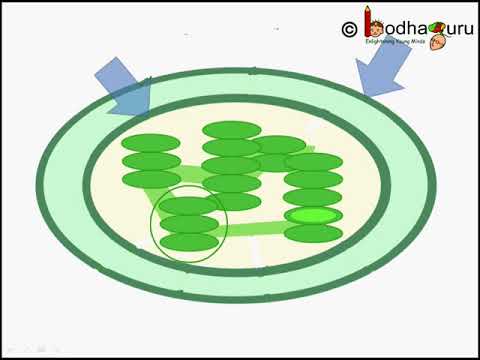
noun Cell Biology.
- a small, double-membraned organelle of plant cells and certain protists, occurring in several varieties, as the chloroplast, and containing ribosomes, prokaryotic DNA, and, often, pigment.
noun
- any of various small particles in the cytoplasm of the cells of plants and some animals that contain pigments, starch, oil, protein, etcSee chromoplast
n.1876, from German plastid, coined by Haeckel from Greek plastos “molded, formed” (see plaster) + -id. n.
- Any of several pigmented cytoplasmic organelles found in plant cells and other organisms, having various physiological functions, such as the synthesis and storage of food.trophoplast
- One of the granules of foreign or differentiated matter, food particles, or waste material in cells.
- An organelle found in the cells of plants, green algae, red algae, and certain other protists. Like mitochondria, plastids have an inner and outer membrane, and contain their own DNA and ribosomes. Some plastids, such as the chloroplasts in plant leaves, contain pigments.
 Liberal Dictionary English Dictionary
Liberal Dictionary English Dictionary